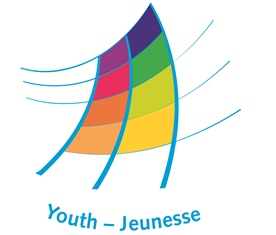Confidence in Tomorrow

Confidence in Tomorrow? Confidence in Tomorrow!
The youth event Confidence in Tomorrow was organised in the framework of the celebrations of the 75th anniversary of the Council of Europe under the Presidency of Liechtenstein.
This event strengthened the relationship between the Council of Europe and young people. It was organised with the aim of young people sharing their commitment to a democratic Europe and contributing to shaping the mission of the Council of Europe.
Participants’ ideas and aspirations were summarised in a clear message to Council of Europe duty bearers. More than a call to action, more than mere words, this message was presented to participants as a tool to promote the values of democracy and human rights. It is infused with the understanding that every young person has power as an individual and as a stakeholder of the Council of Europe to shape society and how the future is made. Young people need allies in governments and institutions to share in their hope, to adopt democratic conviction and radical humanity in creating the tomorrow they want and can be confident in.
- Young people want to be confident in tomorrow but need duty-bearers to step up and act in partnership with us. Shared commitment to creating confidence in tomorrow is needed like never before.
- Young people risk losing confidence in institutions when their capacity to protect and uphold human rights and the rule of law, to promote peace and prevent war is undermined.
- Young people are concerned that the centrality of human rights is threatened when they are not implemented in practice. A culture of impunity is absolving duty-bearers of their responsibility and accountability. Rights-holders feel left behind in an increasingly polarised and oppressive political space.
- Young people care deeply about democracy, fighting and risking their lives for democracy. Civic space is not only shrinking it is being attacked. Young people want to make robust and pluralistic democracy cool again and should not be silenced when they do not participate in conventional ways.
- Young people experience inequalities in terms of employment, health, education, and housing which intersect to cause marginalisation and disadvantage. They urgently need peace – when there are rockets in the sky, young people cannot focus on tomorrow. They need education to be freed from its misuse as an instrument for social control, and of the negative risks associated with disinformation and artificial intelligence. It should respond to the needs of young people and equip them with civic skills to participate actively in society. Young people need safe spaces to learn informally, develop critical thinking and to break down barriers.
 Objectives
Objectives
- To associate young people and youth civil society to the 75th anniversary of the Council of Europe and its relevance for young people today
- To engage youth organisations, notably national youth councils, as partners in the follow-up to the conclusions of the Reykjavík Summit, in particular the implementation of the Reykjavík Principles for Democracy
- To identify emerging (youth) issues and explore the approaches for integrating a youth perspective across the work of the Council of Europe and its member states
- To strengthen youth participation, by pursuing dialogue between young people, youth civil society and political decision-makers.
 Programme and outcomes
Programme and outcomes
The event marked the 75th anniversary of the Council of Europe and its contribution to safe-guarding human rights, democracy and the rule of law and aimed to renew and strengthen partnership between the Council of Europe, Member States and young people. Young people, representing a variety of youth civil society organisations, and representatives of the governments of the Member States of the Council of Europe, shared their concerns about, commitment to and aspirations for the revitalisation of democracy in Europe.
The youth event brought together some 100 representatives of national youth councils, international youth organisations, as well as representatives of the national authorities in charge of youth, for a three-day programme that has been a strong experience of the participatory approaches characteristic to non-formal education and youth work.
The programme has featured plenary sessions, working groups organised according to the key themes of the event, integrating also themes brought up by the participants; a specific attention was placed on the application of the Reykjavík Principles of Democracy in the shaping of the mutual roles of the participants and the Council of Europe.
The programme has also featured a dialogue session on 16 May with Ministers of Foreign Affairs attending the solemn Committee of Ministers meeting. Key messages of the youth event were conveyed by the young participants as part of the official programme of the celebrations in the Strasbourg Opera House on 16 May.
Read more about the programme of the event and key messages. Read the statement of the Advisory Council on Youth.





